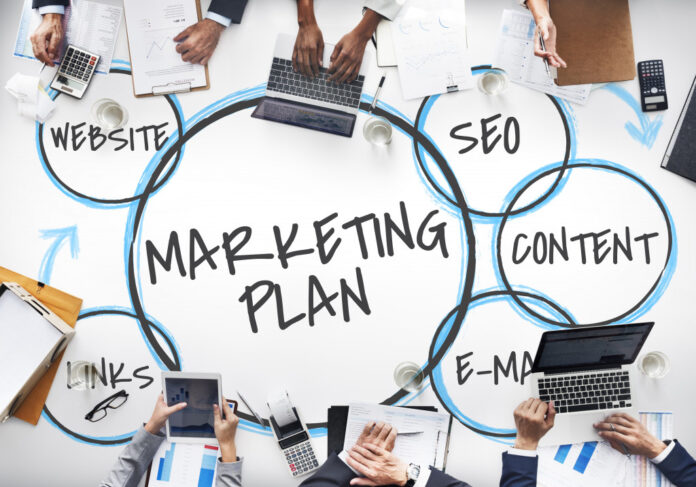Every business, no matter the size, needs marketing in order to generate high ROIs and grow efficiently. Marketing helps to create and maintain a company’s reputation and relevance since the lifespan and growth of any business are strongly correlated to its reputation.
And businesses can build their reputation when they meet the expectations of their target market such that each customer is proud to be associated with them.
Marketing is also an effective way of engaging customers to keep the conversation about a brand going. Customer engagement is not about pushing your offers aggressively. It’s about furnishing your target market with relevant information about your brand and the products or services you offer.
Customer engagement usually works best when there’s fresh content that makes your customers connect with your brand.

Furthermore, marketing helps to boost sales by increasing the demand for a company’s products or services. It places an advertised product on the radar, increasing people’s interest in it which will likely trigger their purchase decisions.
And if the product or service meets their expectations, they’ll likely become ambassadors for the brand without the business owner’s knowledge.
There’s no specific marketing strategy that suits all customer types. That’s why businesses usually experiment with various marketing tactics when trying to attract their desired audience. In the process, they may test different sets of messaging on their target audience to find the best one to convince their potential customers.
This process gives businesses insights about their brands and target customers, which they can use to make informed decisions that will benefit them and keep them ahead of the competition. Keep reading to discover how to boost customer engagement and drive business growth.
1. Optimize Your Website for Search Engine Discoverability

In this digital age, every business needs a website to enable customers to learn more about their brand and product or service offerings. But it’s not enough to have a company website. Your business site needs to be SEO-friendly so that search engines can understand its contents and show it to internet users (potential customers) searching for products and services related to yours.
So, conduct extensive keyword research before developing your website content and incorporate primary keywords into your site’s landing pages, meta descriptions, and titles.
Focus on long-tail keywords and local SEO and take care of your page load speed (it must be fast), website design, and other technical aspects of SEO. Also, use structured data to generate better search engine result page (SERP) rankings for your website’s pages.
Create engaging content on trending topics in your niche to post on your site. But don’t just focus on creating new pieces to publish and overlook content quality. You can identify the most popular content in your industry and use the insights to plan your future content.
To keep your content fresh and timeless, consider updating older write-ups with new perspectives, visuals, or data and republish them for a wider reach. You can also repurpose old content as an infographic or turn a series of blog posts into a report or an ebook guide.
Remember to go through the content performance report and identify what is doing well and what isn’t working. This will help revamp the content strategy for the long-term.
2. Integrate Your Offline and Online Marketing Strategies

Just like your online marketing activities, your offline marketing efforts are essential. To create a much smoother experience for consumers and enable them to navigate the customer journey easily, integrate your offline and online marketing activities.
This integration creates a synergy across your online and offline branding and helps you build trust with your audience, encouraging them to purchase products through digital and physical channels.
Promote your online marketing products through offline methods and vice versa. The experts at Experiencenve, a well-known marketing agency believe that you can identify experiential marketing campaign ideas and the actions you want your target audience to take after your marketing campaigns and create an in-person or virtual experience that guides them to take the desired steps. It is simple, effective and result-oriented.
Join your online data (analytics) and offline data (customer relationship management) to build a detailed customer profile and help you better understand the customer journey. This data can help guide your subsequent marketing strategies. For example, you’ll know if you need to use paid media campaigns more or create localized ads to increase your store footfalls.
3. Build Authentic Relationships With Your Audience

Building an authentic relationship with customers is pivotal to the long-term success of your business. When there’s a strong connection based on sincerity and trust, your customers will feel more secure, and you’ll have a higher chance of retaining them. One of the ways to connect with your target audience and form a distinct brand image is by telling your brand story.
Many brands have back stories about how they started and weathered raging storms in their early years. You can craft a beautiful brand story based on your journey and share it with your audience. Don’t be afraid to share about past mistakes and actions you took that led you to the point you are today.
Such revelations will humanize your brand because your target audience will see that, just like them, you’re not above mistakes. Brand stories are more memorable, and they leave lasting impressions in people’s minds. You can use pictures and videos to give life to your story and make it remarkable.
You can also showcase your brand’s authenticity by creating live content as part of your marketing strategy. Consider streaming live Facebook videos and hosting live podcasts. You would be surprised how much such streams can positively impact your customer engagement. When promoting your products and services through marketing, ensure that your message is authentic, memorable, and relatable. In addition, you can build strong relationships with your audience by engaging and connecting with them in a tangible way. Polls are a great tool for businesses to gauge customer satisfaction, success of events, and product consideration. For more detailed feedback, surveys can help give a fuller understanding of how your customers are feeling. You can engage with your clients via a text blast to send SMS surveys or polls. These can be interactive with automated responses, thus enabling you to ask for more targeted feedback.
4. Invest in Social Media Marketing

Social media marketing is one of the cheapest and most effective marketing forms for businesses. If you are not using social media to market your products or services, you could be losing out on a massive audience.
Today, everyone is on social media but the trick is to choose the right channel based on the target audience. To have a successful social media marketing campaign, you must select the platform where your target customers are most active and consistently post engaging social media content.
Remember, the content should be engaging, informative and relevant. You will also need to remain consistent with your social media strategy. Understand the data and identify where your audience is, what do they enjoy reading or watching and where their interests lie.
This will help you design a strategy that is engaging and will generate a higher revenue. Use attractive, high-quality visuals to draw your audience’s attention and maintain a consistent brand voice. You can create branded hashtags to track your campaigns while using relevant popular hashtags to reach more people.
These are some tried-and-tested marketing ideas that will help achieve high consumer engagement and business growth. No matter the industry you are in or the type of products and services you sell, the right marketing strategy will generate results and convert leads.
Consider your business strategy and keep the target consumers in mind when you decide on a marketing route. Stay consistent and go through the data and analytics regularly so that you know whether you are on the right path.









